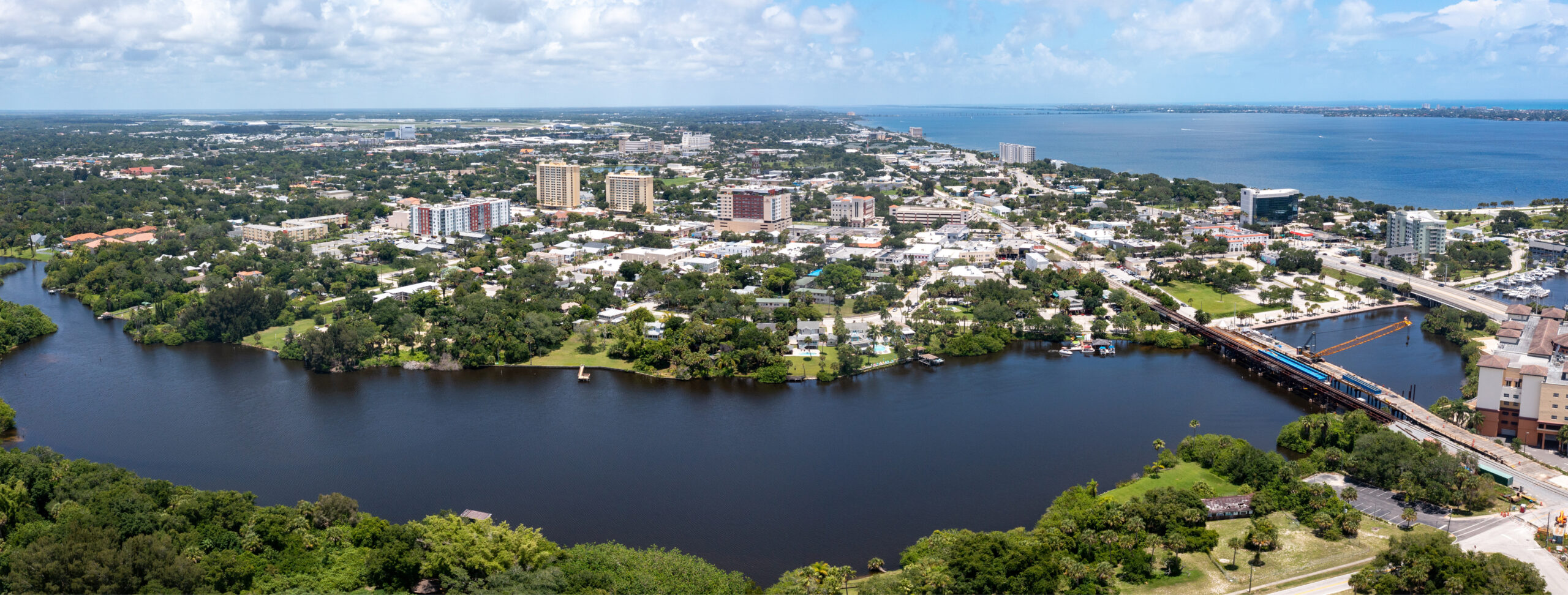Extradition is the legal process where one state hands over a suspect or convicted criminal to another state where the crime occurred or where the person is wanted. This is a complicated process, and retaining legal representation is imperative as it is nearly impossible to represent yourself when arrested for extradition.
Melbourne Attorney for Extradition
If you are facing an extradition request on the Space Coast, you need the help of an experienced criminal defense attorney. A defense attorney can protect you from a extradition requests for fugitive warrants.
Contact Attorney Mark Germain of Germain Legal today to help fight your extradition request at (321) 248-7742.
Our Space Coast office is located in Melbourne, Florida, and we proudly serve the surrounding communities of Palm Bay, Titusville, Rockledge, Merritt Island, Cocoa, and Satellite Beach in Brevard County; Vero Beach and Sebastian in Indian River County; Deltona and Daytona Beach in Volusia County; and Kissimmee and Poinciana in Osceola County.
- Extradition Laws
- Rights of the Accused in Extradition Cases
- Extradition of Individuals with Mental Incompetence
- Interstate Agreement on Detainers
- Role of an Extradition Lawyer
- Additional Resources
- Hire a Defense Attorney for Extradition Warrant in Brevard County
Extradition Laws
The constitutional foundation for extradition in the United States is Article IV, Section 2, Clause 2, known as the Extradition Clause. This clause ensures that a person charged with a crime in one state and located in another state will be returned to the state where the crime was committed. It provides the legal basis for interstate extradition and reinforces the cooperation required between states in handling fugitives.
Florida Statutes Chapter 941 (Uniform Criminal Extradition Law) sets the rules for how individuals who are fugitives from justice are to be arrested, transferred, and delivered to the state that wants them. These laws cover various situations, such as when a person wasn’t in the state at the time of the crime, when they fled involuntarily, or when they are already facing legal action in Florida.
The Governor’s Role in Extradition
It is the Governor’s responsibility to have a person arrested and handed over to another state if that person is charged with a crime and has fled to Florida. For the extradition request to be valid, it must be in writing and supported by legal documents, such as an indictment or a warrant, which show the person is charged with a crime.
The Governor can also choose to investigate the case further to determine if the person should be extradited. This investigation might involve help from the Department of Legal Affairs or other legal officers. If the Governor agrees with the request, they will issue a warrant of arrest directing law enforcement to apprehend the individual.
The warrant issued by the Governor is a key document in the extradition process. It not only authorizes the arrest but also ensures that the legal requirements are met. The Governor also has the power to cancel or reissue a warrant if necessary, highlighting the significant control held by the executive authority in the extradition process.
Rights of the Accused in Extradition Cases
Florida law protects the rights of individuals facing extradition, especially regarding their right to be informed of the charges against them and to contest the extradition. Once a person is arrested on a Governor’s warrant, they must be brought before a judge without delay. The judge informs the person of the charges and their right to legal counsel.
According to Florida Statutes Section 941.10, the person has the right to challenge the legality of their arrest through a writ of habeas corpus. If the person or their lawyer wants to test the legality of the arrest, the judge must allow time for them to apply for this writ. The judge also notifies the state attorney and the agent from the demanding state about the habeas corpus proceedings.
A Governor’s warrant is presumed to be valid unless the court finds that the individual in custody is not the person named in the warrant, is not a fugitive from justice, or that there is no valid criminal charge against them in the demanding state.
Extradition of Individuals with Mental Incompetence
Florida’s extradition laws also cover the sensitive issue of extraditing individuals who are mentally incompetent or have mental illness. Florida Statutes Sections 941.38 through 941.42 explain the procedures for extraditing people who were legally detained in another state for mental illness and fled to Florida.
The Governor must surrender an individual found in Florida who fled from another state while under legal detention for mental illness or after being declared mentally incompetent. The state requesting extradition must provide official documents proving the individual’s legal detention or incompetence, along with an affidavit showing that the person is a fugitive. The Governor and other involved officials must ensure that the extradition does not worsen the individual’s mental condition and that all legal requirements are strictly followed.
Interstate Agreement on Detainers
In addition to extradition, Florida law also covers how to handle detainers through the Interstate Agreement on Detainers, found in Florida Statutes Sections 941.45 to 941.50. This agreement is a joint effort between states to resolve untried charges against individuals who are already serving prison sentences in another state.
This agreement allows a prisoner to request a final disposition of any untried charges that have led to a detainer being filed against them. Once the request is made, the state holding the prisoner must bring them to trial within 180 days, helping to ensure a speedy resolution of charges and reducing uncertainties that might affect the prisoner’s rehabilitation.
The agreement also allows the state requesting the detainer to take temporary custody of the prisoner for trial. However, this custody is limited to the charges specified in the detainer and must respect the prisoner’s rights. If the trial does not happen within the required time frame, the charges must be dismissed.
Role of an Extradition Lawyer
Challenging Identity
One of the first things your extradition lawyer will look at is whether you are actually the person named in the extradition request. Mistaken identity can happen, and your lawyer may argue that the person being sought isn’t you. They might present evidence to show that you weren’t in the state at the time of the alleged crime or that your appearance doesn’t match the description provided. If there’s enough doubt about whether you’re the right person, your lawyer can use this to challenge the extradition and possibly get the request dismissed.
Questioning the Validity of the Charges
Another critical part of your defense will involve examining the charges against you. Your lawyer will go through the legal documents, like the indictment or warrant, to make sure everything is in order. They’ll check if the charges are valid and backed by proper evidence. If the charges are old, poorly filed, or don’t meet the legal standards for extradition, your lawyer can challenge them in court. In some cases, they might even argue that the crime you’re accused of doesn’t qualify for extradition between the two states. Any flaws in the paperwork or process can work in your favor.
Voluntary Return to Florida
When facing extradition, defendants may have the option to voluntarily return to Florida rather than waiting in jail. This is sometimes preferred by the court to reduce costs and administrative burden. An experienced lawyer can work with the judge to temporarily withdraw the arrest warrant, allowing the defendant to travel back to Florida voluntarily, attend a court appearance, and avoid the more formal extradition process.
Addressing Old Violation of Probation Warrants
In cases involving old violation of probation warrants, a defense attorney can sometimes argue to have the probation terminated, eliminating the need for the defendant to return to Florida at all. This is particularly relevant when the probation violation occurred many years ago and there may be little to gain from enforcing the warrant after such a long time. A lawyer’s intervention in these cases can lead to a favorable outcome without the defendant being extradited.
Handling Felony Warrants on New Charges
When a defendant faces a new felony charge in Florida but is residing out of state, an attorney can petition the court for bond, allowing the individual to be released from custody and return to Florida without undergoing extradition. In addition, a lawyer can negotiate with the prosecutor to potentially reduce or dismiss charges, further simplifying the defendant’s situation and avoiding the need for extradition.
Waiving Extradition
Defendants facing extradition have the option to waive their right to challenge the process. This can expedite their return to Florida. An attorney can advise on whether waiving extradition is the best strategy, considering the specific details of the case. Waiving extradition speeds up the process but means that the defendant agrees to be transferred back to Florida without a hearing.
Timeframe for Extradition
Once a defendant either waives extradition or a court approves the extradition request, the demanding state (Florida) must take custody and transport the person within 30 days. A lawyer can help monitor the process to ensure that the demanding state adheres to these deadlines, protecting the defendant from extended periods in custody.
Protecting Your Constitutional Rights
Your lawyer will also be focused on ensuring that your constitutional rights are protected during the extradition process. This includes your right to due process, fair treatment, and protection from cruel or unusual punishment.
Additional Resources
Florida Statutes Chapter 941 – This part of the Florida Statutes outlines the procedures and responsibilities regarding interstate cooperation for criminal procedures, including extradition. It provides guidance on how the Governor of Florida should handle requests from other states for the extradition of fugitives. This law also addresses interstate agreements on detainers and the transfer of prisoners between states.
Florida Crime Information Center Public Access System – This tool allows individuals to search for those with warrants in Florida. A person can enter details like name, race, sex, and date of birth to conduct a search. The information is updated every 24 hours from the Florida Crime Information Center files. It’s important to verify the details with local law enforcement before taking any action, as the database might not always be current or accurate. This resource is managed by the Florida Department of Law Enforcement.
Hire a Defense Attorney for Extradition Warrant in Brevard County
If you are facing an extradition request in Central Florida, you need the help of an experienced criminal defense attorney. Contact Attorney Mark Germain of Germain Legal to help fight your extradition request at (321) 248-7742.
The Law Office of Mark Germain represents clients faced with extradition requests in Brevard County, Indian River County, Volusia County, Osceola County, including the cities of Melbourne, Palm Bay, Titusbay, Vero Beach, Gilford, Sebastian, Deltona, Daytona Beach, Port Orange, Kissimmee, and Poinciana.



